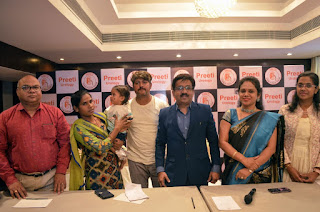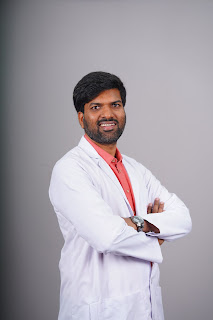Retailers Association of India (RAI) hosted the third edition of the Hyderabad Retail Summit (HRS) on April 24, 2024 at the Hotel ITC Kohenur Hyderabad. HRS is a content-led platform for industry stakeholders across categories to come together to learn, connect and engage in a common dialogue over issues relevant to retail in the region.
Speaking about the developments in the retail industry, Kumar Rajagopalan, CEO, Retailers Association of India (RAI), said, “The retail sector in Telangana has undergone a rapid transformation, spurred by a modernisation wave that blends offline assurances with online convenience. At the heart of this evolution are our tech-savvy consumers, largely influenced by the region's robust IT industry. These consumers are not just looking for products; they demand seamless integration of online accessibility and the reliability of offline retail experiences. This dynamic shift is pushing the retail industry towards a model that promises the best of both worlds, setting a benchmark for retail innovation across the nation
Highlights of the Hyderabad Retail Summit (HRS) 2024 were the in-depth panel discussion on topics such as The Modern Retail Renaissance: Innovations And Consumer-Centric Strategies, Retail Revolutionised: The Technological Transformation, and Revolutionising The Indian Grocery Industry: Technology, Supply Chains, And Logistics.
Sharing valuable insights on these panels were some prominent faces of the retail industry in the region, namely Avnish Kumar - Managing Director, Neerus Ensembles; Gautam Gupta - MD & CEO, Paradise Food Court; P Jayakumar - CEO, Apollo Pharmacy; Taran Chhabra, Co-Founder, Neeman's, Vikash Hisariya - Managing Director, Vishal Peripherals, among others.
“As the head of RAI's Telangana Chapter and Managing Director of Neerus Ensembles, I am thrilled to witness the convergence of industry leaders at the Hyderabad Retail Summit. This summit serves as a pivotal platform for exploring and embracing new strategies tailored to evolving consumer behaviours. Our focus at RAI to connect, converse, collaborate, and catalyse is vividly brought to life here as we blend digital and physical retail landscapes, paving the way for a future where retail experiences are not only integrated but also deeply personalised to meet consumer expectations, " said Avnish Kumar, Head of RAI's Telangana Chapter, and Managing Director, Neerus Ensembles.
P Jayakumar, CEO, Apollo Pharmacy added, “Modern health care is revolutionizing with integrating technology with traditional services to offer an omni-channel experience. In Telangana, with over 800+ stores, including 24 hours outlets, and the Apollo 247 online platform, we provide a continuum of care that’s both convenient and reliable. Our services range from delivery of the medicines, lab test, doctor consultations etc., ensuring quality care is always within reach. As we adapt to the modern retail landscape, our commitment to accessible healthcare remains unwavering, backed by the trust of our customers.”
Taran Chhabra, Co-Founder of Neeman’s added, “"At the Hyderabad Retail Summit, we delved into the transformative role of technology in the footwear industry, particularly its potential to drive sustainability. This event highlights the critical need for integrating innovative technologies that not only enhance customer experiences but also promote environmental stewardship. As we continue to explore and adopt these advanced technologies, we are setting new standards for sustainability in footwear manufacturing, leading the industry towards a more responsible future."
HRS 2024 is Presented by Ratnadeep Retail and Powered by National Mart. Platinum Partners included Neeru’s Ensembles and Amazon Pay; Retail Design Partner is 4D Experience, Associate Partners include Apollo Pharmacy, BillMade, Café Niloufer, and Donracks; Event Partners include Akrivia HCM, Intelisa, Amply, Entasis Global. Onebeat, Ravulapati TecHub, Archana Engineering, 24/7 HRM and Petra Rock; Mahendra Mithaiwala as Gifting Partners, TRRAIN as Charity Partner, STOrai as the Magazine Partner, Digital Magazine Partner - Replenish and RAI Global Linker as Networking Partner.

.jpeg)



